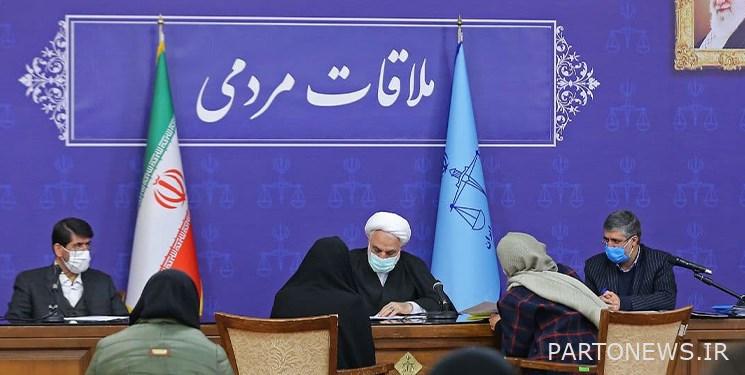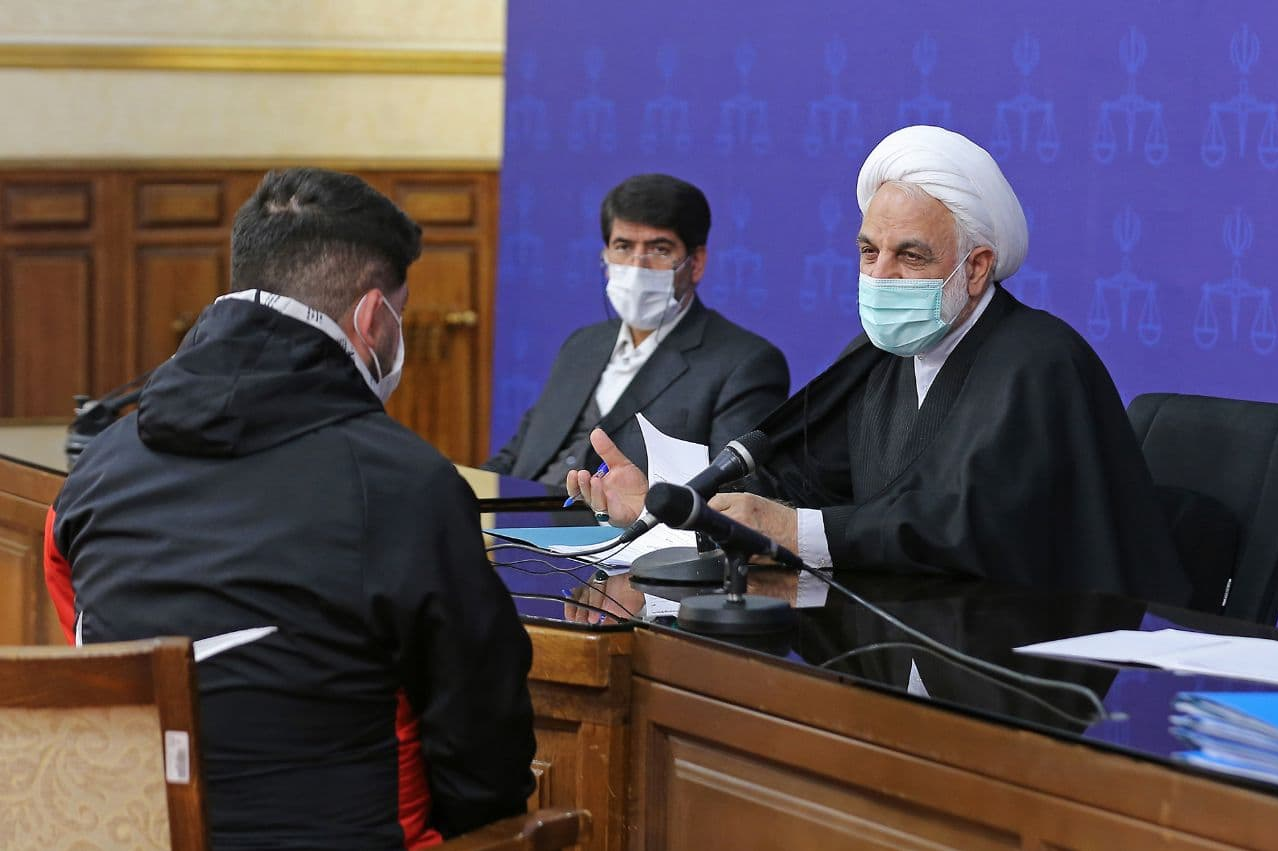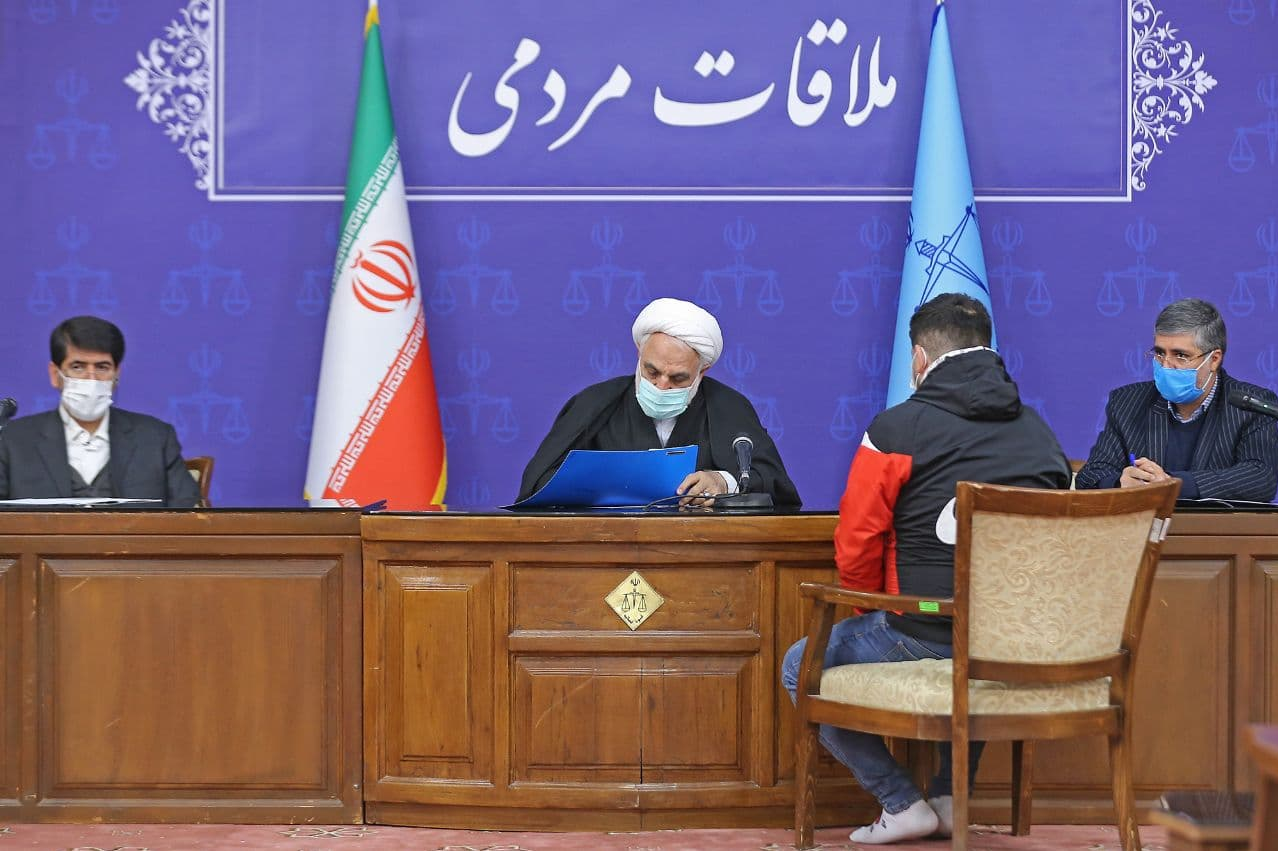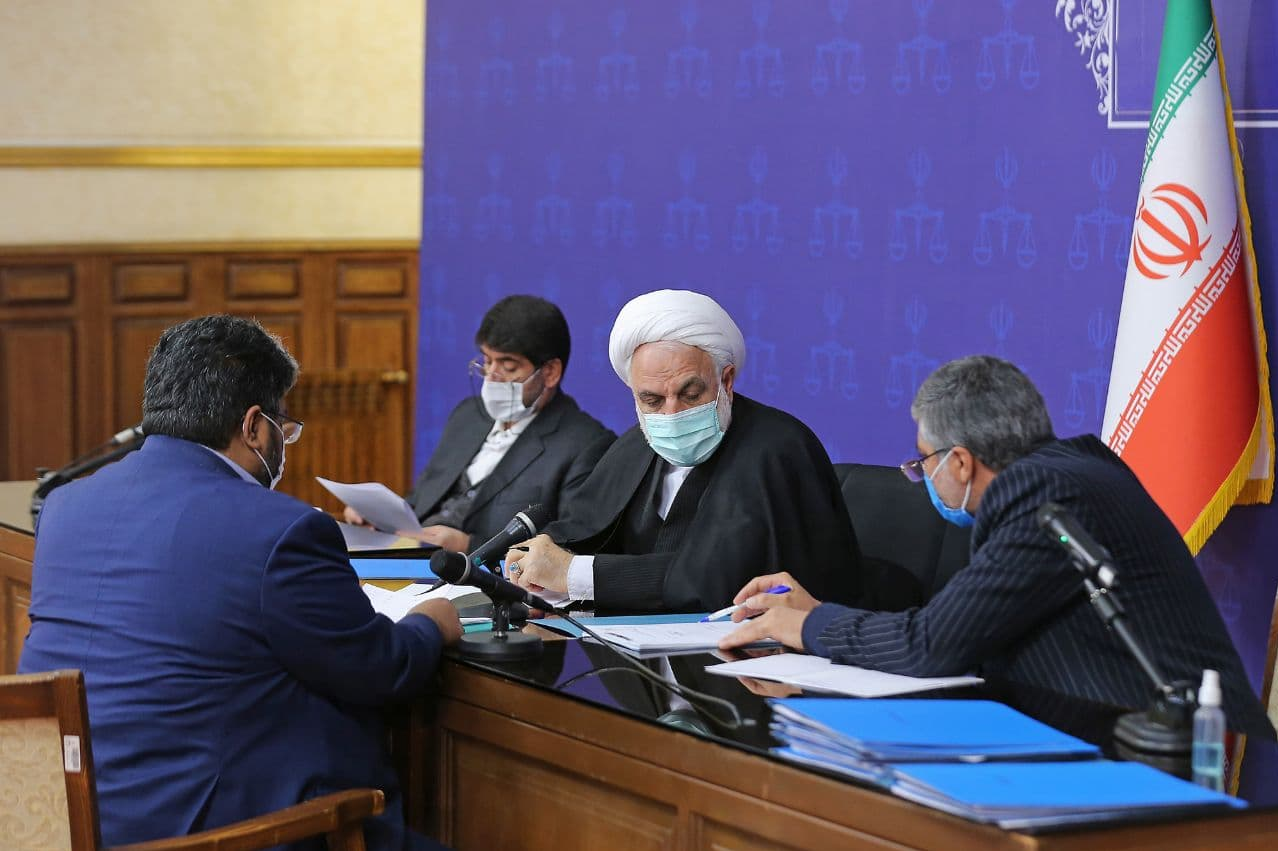Mohseni Ejei’s face-to-face meeting with the families of those convicted of the November 1998 events

According to Fars News Agency, in a series of public meetings between Hojjatoleslam and Muslims, Mohseni Ejei, this morning (December 25), the head of the Judiciary met for a couple of hours with a number of families of security convicts, the November 1998 events and public crimes.
These people had referred to the Public Relations Office of the Judiciary in the past few days.
The petitions that the people made today to Hojjat al-Islam wal-Muslimin Mohseni Ejei were mainly cases in which decision-making is legally within the responsibilities of the head of the judiciary.
After hearing the petitions of the applicants and the case study of the cases which were mainly related to public and security crimes and 3 of them were dedicated to the convicts of the events of November 1998, the Chief Justice said: Informed the relevant judicial units.
Today’s orders of the Chief of the Judiciary, after listening to the petitions of the applicants, mainly focus on “Amnesty review”, “Applying legal remedies for the convict and the accused”, “Giving leave to a prisoner”, “Applying an alternative prison sentence” and “Reducing bail for He was accused.

Following warnings of legal remedies for convicts or defendants in prison, the Chief Justice asked their families to provide conditions for the released person to return to prison.
Hojjat-ul-Islam and Muslims Mohseni Ejei, after reviewing and communicating the necessary instructions to the relevant authorities regarding the clients’ requests, said in a speech: Individuals handling legal and criminal cases or inmates in prison.
Referring to the follow-up and review of public requests by the Judiciary Public Relations Center, the Chief Justice said: “Among these requests, there are special cases that the head of the Judiciary needs to decide on them, and today at the discretion of the Judiciary Public Relations Center officials.” The judiciary dealt with a number of popular demands and took the necessary measures.

Hojjat-ul-Islam and Muslims Mohseni Ejei, referring to the emotions and feelings of the families of convicts and prisoners who met with him today, said:
Some of the clients expressed their remorse for the convicted person or the accused and demanded that the name of the person in question be included in the amnesty list. Was notified.
At the same time, he stated: “There were people present during today’s public meeting who, relying on the illness of the prisoner in question, demanded legal remedies or a change in the type of punishment, which the forensic doctor must comment on, and then In these cases, a decision is made.
Hojjat al-Islam wal-Muslimin Mohseni Ejei continued: “My feeling was that a number of the applicants’ requests in today’s meetings were correct.”
He added: “Legal remedies can include the case of a prisoner who has no criminal record, has spent some time in prison, and today he still regrets; Accordingly, today we introduced a number of these people to the Chief Justice of the provinces or prosecutors of the country in order to enjoy legal remedies.
The head of the judiciary added: “The judiciary is built as much as possible and it is not necessary for the people who are in prison to include legal amnesties or conversions and discounts.”

Hojjat-ul-Islam and Muslims Mohseni Ejei also clarified: “There were special cases in today’s meeting that due to the severity of the punishment, having private plaintiffs, there was no way for the legal remedies of the convicted or accused person.”
The head of the judiciary stressed that legal pardons could not be applied to a person whose criminal record contained criminal charges such as robbery and kidnapping, and he himself accepted all these charges and his imprisonment would not last long.
End of message /
You can edit this post
Suggest this for the front page
.

